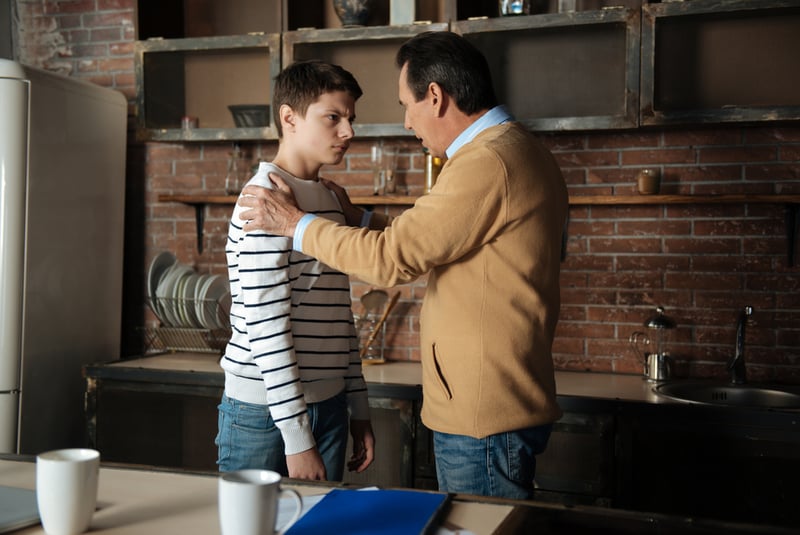4 Questions to Ask Your Teen to Empower Conflict Resolution Instead of Encouraging Conflict

We remember what they were like when they were little. Small children are full of robust emotions and energy for which they don't yet have a vocabulary to express. They scream and cry, they laugh and run around, they throw temper tantrums, they throw objects, they exhaust themselves with tears. Sometimes they hit us out of frustration. As they got older and learned to use their words, the words seemed to fall short in expressing the depth of their emotional experience. When they became adolescents and turned to substance abuse, they didn't need the words anymore. Somewhere in between the fights and the substance abuse, the words got lost, along with the authentic emotions.
For addicts and alcoholics of any age, emotional regulation is an essential therapeutic life skill for long term abstinence and recovery. Drugs and alcohol act as numbing agents to emotional experience. Drugs and alcohol either make emotions feel like they've disappeared, or intensify them to such a degree that their authenticity is forgotten. Identifying actual feelings, understanding what those feelings really are, and developing the language to respectfully articulate those feelings is a challenge in treatment and recovery. To empower this growing process we want to enable our kids to rely on their own thinking to express themselves. Kids in recovery need to know that they can be at one with their own emotions and express themselves effectively, without having to turn to drugs and alcohol to escape or change how they feel.
What are your thoughts on this situation?
You might already know what they're thinking and feeling, but they don't know. You want to empower them to identify their own thoughts and develop their own opinion about what they are confronted with.How do you want to handle this situation?
It is easy for kids to default to self-deprecating responses like I don't know how to do anything. Instead, encourage them to try out the tools they are developing through treatment. Together, you can explore the pros and cons of their answers, without negating their responses.Have you taken time to think about this situation?
Addiction and alcoholism thrive on impulsivity. By asking this question you remind your kid to remind him or herself to take a few minutes and think.How does it feel to approach this situation that way?
Working with feelings and making autonomous emotional decisions can feel awkward and uncomfortable. It's important for kids to recognize that even with some discomfort, they are gaining confidence in their emotional lives.There is hope in recovery for your teen or adolescent who has become addicted to drugs and alcohol. Stonewater Adolescent Recovery Center offers long term residential treatment programs for adolescent males. Our unique programs offer comprehensive and customized treatment programs to meet each patient's specific needs. For information: 662-598-4214.

.jpg)

